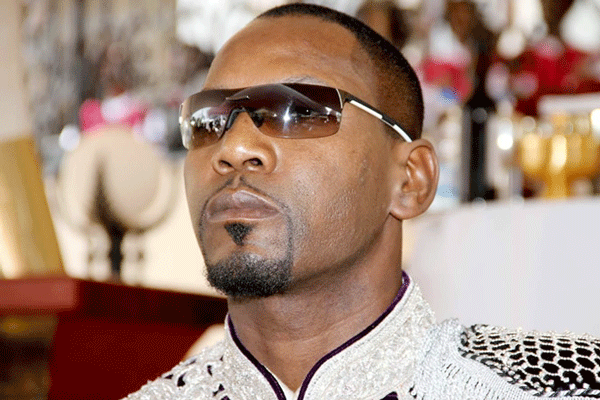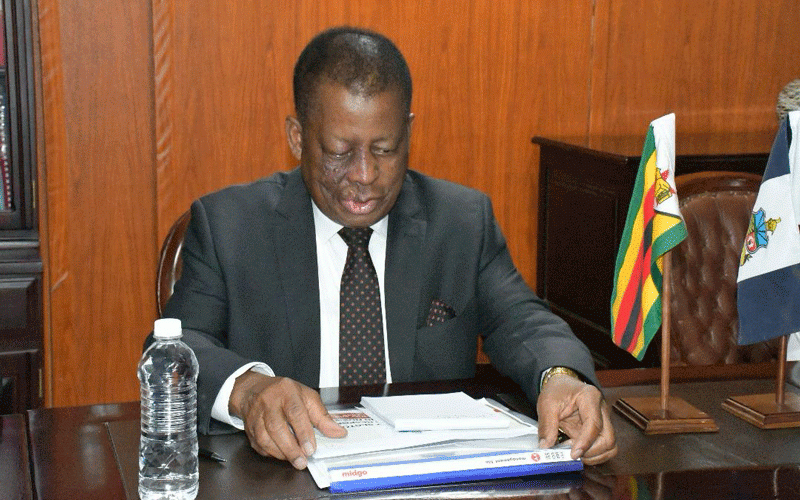
More than two centuries ago, an Irish philosopher called Edmund Burke said: “The only thing necessary for the triumph of evil is that good men do nothing”. He didn’t think good women mattered too, it seems. But he still had a point. In Zimbabwe, where bad governance and corruption are concerned, citizens are largely poor students of Burke.
corruptionwatch WITH TAWANDA MAJONI

Corruption and bad governance are rife, but the problem is, good citizens think doing something the Burkean way is just to jaw about it and moan. They won’t act in meaningful ways and expect the very corrupt people and systems to do something about it. That’s like waiting for a mosquito to cure malaria.
Things can and must change. There are so many opportunities that give citizen power to act decisively on corruption and bad governance. And one such opportunity is the constitution that was adopted in 2013. More precisely, the constitution gives citizens the right to demand transparency and accountability from both public and private sectors players en route to a less corrupt society. It also guides us on what we must do to fight bad governance and corruption.
Transparency entails operating in ways that make it easy for others to see and understand what you are doing. For instance, there is transparency when the Reserve Bank of Zimbabwe and the government adequately and honestly inform you about how they are producing bond notes and what they intend to do with them. Where they tell you that the bond notes are to incentivise exports, yet go on to give them to a herd boy in Mahuwe, there is opacity and dishonesty because herd boys don’t export anything.
Accountability is about people and institutions taking responsibility for their decisions and actions. They must explain, clarify and justify their actions. That also means that citizens hold the right to be informed about those decisions and actions so that they can hold those that matter to account. In this sense, accountability and transparency are twins. One can’t choose to be accountable without being transparent.
Bad governance and corruption thrive in both the public and private sectors today because there is so much lack of transparency and accountability. Bad people and institutions hate transparency and accountability. This is precisely because a well-informed citizenry will not help their cause. If citizens, for instance, are well-informed about how particular tenders are handled and those involved are forced to account for their decisions, then no-one will take bribes or get jobs unprocedurally. If they still went ahead and did it, they would be easily exposed. Transparent operations will make it hard or impossible for institutions and their employees to be inefficient or manipulate systems for personal gain.
That means, at all times, citizens must demand access to information on both public and private sector processes so as to ensure that officials and other individuals involved operate in a transparent manner that also enhances accountability and weakens chances for bad governance and corruption.
- Chamisa under fire over US$120K donation
- Mavhunga puts DeMbare into Chibuku quarterfinals
- Pension funds bet on Cabora Bassa oilfields
- Councils defy govt fire tender directive
Keep Reading
The constitution, as already pointed out, provides a perfect platform for that. It has numerous provisions that empower citizens, civil society and other agencies to claim their right to access to information relating to public and private governance and speaks to other salient issues relating to public and private processes. It is not possible under this space to give justice to all those provisions, so a few highlights will be given.
At the onset, the supreme charter recognises and acknowledges the importance of good governance. In Section 9 (Chapter 2), the constitution provides that the state must adopt and implement policies and legislation that develop efficiency, competence, accountability, transparency, personal integrity and financial probity in all institutions and agencies of government. This particular section also directs that measures must be taken to expose, combat and eradicate all forms of corruption and abuse of power by those holding political and public offices.
This gives a good setting for citizen participation in the fight against bad governance and corruption. Citizens can use various forms of methods to ensure that Section 9 is implemented. They can peacefully demonstrate and petition (including parliament) as provided for under the Declaration of Rights, in particular Section 59, to ensure that there is transparency, accountability and integrity in processes and decisions involving and made by public agencies.
Naturally, the Declaration of Rights (Chapter 4) is abundantly useful as a source of citizen power to fight bad governance and corruption. Section 61 gives citizens the right to seek, receive and communicate ideas and other information. That means citizens can proceed to demand information pertaining to governance that is in the public interest, forcing transparency and accountability in the process.
Closely related to this is Section 62, which provides that every Zimbabwean citizen or permanent resident has the right to access information held by the State or any institution or agency of government for as long as the information is required in the interest of public accountability. Significant access to information enhances transparency and accountability, and shrivels space for corruption and bad governance.
Section 62 is one provision that many of us, journalists included, seem not to be sufficiently aware of, but it can do wonders in facilitating citizen participation against corruption. It gives one or classes of citizens the opportunity to approach public entities and demand information on many matters.
For instance, citizens can use it to demand information on how Air Zimbabwe selected and appointed Simba Chikore, President Robert Mugabe’s son-in-law, as the national airline’s chief operating officer. They have the power to demand minutes, correspondence and other forms of information relating to the selection process. They may meet a lot of resistance, but they can always find a remedy in the Constitutional Court, which exists to handle legal applications of a constitutional nature.
It is useful to remember, though, that corruption pervasively affects other rights provided for under the Declaration of Rights. For instance, a cabinet minister who abuses funds meant for social protection is directly and indirectly undermining a child’s rights to education, health and shelter. That means citizens can still appeal to the relevant sections on rights in their fight against corruption, demand transparency and accountability and, if necessary, petition or demonstrate or approach the Constitutional Court.
So, citizens must stop moaning and start looking to the constitution as a tool they can use to ensure better governance and less corruption.
Tawanda Majoni is the national coordinator at Information for Development Trust (IDT), a non-profit organisation promoting access to information on public and private sector transparency and accountability, and can be contacted on [email protected]











